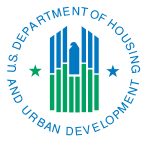Most senior housing/healthcare industry borrowers are well aware of the features, advantages and benefits of popular HUD 232 Lean funding programs. That’s a given.
“Borrowers realize that the terms and conditions for FHA-insured loans are attractive. HUD offers fully amortized, 35-year term loans with up to 80 percent loan- to-value for a refinanced HUD mortgage, and the loan-to-value rises to 85 percent when funding a not-for-profit business,” says Cambridge Realty Capital Companies Senior Vice President Brent Holman-Gomez.
HUD loans are fully assumable and non-recourse, which means the borrower has no personal liability for the debt, he points out.
“A sometimes overlooked but important feature of HUD financing is something that the HUD agency doesn’t do. HUD lenders do not expect borrowers to refinance and make a balloon payment after five years, as conventional lenders typically do.
“HUD borrowers are never required to refinance their FHA-insured HUD loan, though many are inclined to do so when it makes economic sense for them to do so,” he said.
Mr. Holman-Gomez says the ability to choose when not to refinance provides important leverage for the borrower. Ideally, the HUD borrower is able to refinance when the business is performing well and the capital markets can offer more options.
“It can be very stressful if the borrower is forced to refinance under less than favorable circumstances,” he said.
Mr. Holman-Gomez believes the economics for senior housing/healthcare borrowers to refinance today remain favorable, though interest rates are almost certain to rise from current levels as the economy gains more steam. Still, given the competitive nature of the marketplace, attractive rates near historic lows should continue to greet borrowers in the year ahead.
“HUD has always been the lowest price option and this isn’t likely to change,” he said.



